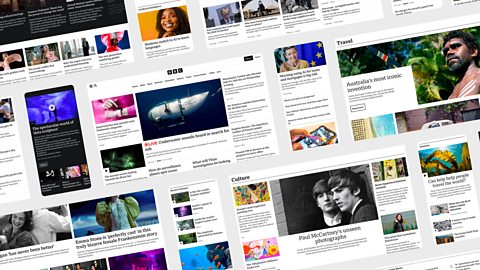Some Known Details About News Websites
Some Known Details About News Websites
Blog Article
A Biased View of News Websites
Table of ContentsNews Websites Can Be Fun For EveryoneNews Websites - The FactsSome Known Incorrect Statements About News Websites The Ultimate Guide To News WebsitesOur News Websites Ideas
It was down in the UK and Brazil but up some various other countries, such as Greece, Bulgaria, and Poland (News Websites). This year, for the very first time, we asked about the different ways that people prevent the news and discovered that around half of avoiders (53%) were trying to do so in a broad-brush or routine way for instance, by shutting off the radio when the news began, or by scrolling past the news in social networkse.g. scrolling past news, changing networks when information comes on. of avoiders check sources much less frequently. e.g. limit to certain times of day, switching off alerts, etc. of avoiders prevent some subjects. e.g. subjects that lower state of mind or rise anxiousness. You said that you try to actively avoid information.

I'm possibly picking to review more light-hearted tales than I utilized to presently. M, 51, UK Switching my back on information is the only means I feel I can deal often. I have to consciously make the initiative to turn away for the benefit of my very own mental health and wellness.
The Best Guide To News Websites
Careful avoidance of Ukraine news was highest in a number of the countries closest to the conflict, strengthening searchings for from our added survey in 2014, not long after the war had actually begun. Our information may not suggest a lack of passion in Ukraine from close-by nations but rather a need to manage time or shield mental wellness from the really actual scaries of battle.
Comparing Finland with a politically polarised nation such as the United States (see next graph) that is much less affected by the war, we find a really different pattern of subject avoidance. In the USA, we find that consumers are most likely to prevent topics such as nationwide politics and social justice, where arguments over problems such as sex, sexuality, and race have ended up being very politicised.
American politics are quite toxic these days. I find sometimes that I need to detach from stories that simply make me angry. F, 61, USA For some dig this people, bitter and divisive political discussions are a factor to transform off information completely, however, for some political partisans, avoidance is often regarding obstructing out viewpoints you don't intend to hear.

Little Known Questions About News Websites.
Some are looking to make information extra obtainable for hard-to-reach teams, widening the information schedule, appointing even more motivating or favorable news, or embracing useful or options journalism that provide individuals a feeling of hope or personal company. In our study this year, we asked respondents concerning their interest in these various techniques.
This discusses why tales like Ukraine or nationwide politics do well with information regulars but can at the same time turn less interested customers away (News Websites). Discerning avoiders are less interested in all kinds of information than non-avoiders however in relative terms they do seem to be more interested in positive or solutions-based news

An Unbiased View of News Websites
2023). This might hold true in the moment, yet gradually it appears to be leaving lots of people empty and much less satisfied, which may be weakening our link with and rely on the information. Throughout markets, overall count on news (40%) and rely on the resources individuals use themselves (46%) are down by a further 2 percent points this year.
Undoubtedly, with the rear-view mirror, the COVID-19 count on bump is clearly noticeable in the complying with chart, though the instructions of travel after that has been mixed. In many cases (e.g. Finland), the trust fund increase has actually been kept, while in others the upturn looks more like a spot in a story of ongoing lasting decline.
Several of the highest possible reported degrees of media objection are discovered in nations with highest degree of distrust, such as Greece, the Philippines, the USA, France, and the United Kingdom. The most affordable levels of media objection frequent those with greater levels of trust fund, such as Finland, Norway, Denmark, and Japan.
Rumored Buzz on News Websites
This year we asked participants about their choices for text, sound and video when consuming news online. Usually, we discover that the bulk still favor to check out the news (57%), instead than watch (30%) or listen to it (13%), but more youthful people (under-35s) are extra likely to listen (17%) than older groups.
Behind the standards we discover significant and surprising country differences. In markets with a strong analysis practice, such as Finland and the UK, around eight in 10 still choose to read online news, yet in India and Thailand, around 4 in ten (40%) state they favor to see news online, and in the Philippines that percentage mores than fifty percent (52%).
Report this page